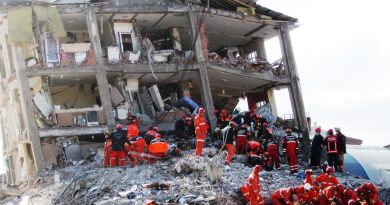Heritage at Risk: Israeli Settlements Threaten Village of Battir
Heritage at Risk: Israeli Settlements Threaten Village of Battir
Yasmin Obeidallah
Associate Editor
Fall marks the season of the olive harvest around Palestine. Each year, families and communities come together to harvest the fruit and produce oil, a necessity in Palestinian life and economy. The olive groves and fruit trees of the village of Battir stand on deep valleys that form a charming and fertile gem of Palestine. This season, the olive harvest is endangered by an all too familiar threat: Israeli settlements entrenching on Palestinian land and sovereignty.
The small village sits southwest of the holy sites of Jerusalem and northwest of the bustling hub of Bethlehem. For centuries, the people of Battir lived off the gifts of the land and created a rich culture from its traditions, songs, and people. Labeled the “Land of Olives and Vines,” Battir was recognized by the United Nations Educational, Scientific and Cultural Organization (UNESCO) as a World Heritage Site in 2014. Its lush valleys and cultural heritage stand as a testament to peaceful Palestinian resilience against military occupation. Now, Battir’s agriculture, land, and its people’s livelihoods are threatened by the establishment of an illegal Israeli settlement.
Last month, the office of Israeli Finance Minister Bezalel Smotrich published a plan for the Nahal Heletz settlement, which will join a cluster of illegal settlements south of Jerusalem, reports Al Jazeera. This construction approves the seizure of privately owned Palestinian land to build settler houses and military outposts, while entrenching Palestinian sovereignty in the West Bank, according to BBC News. These settlements will also disturb Battir’s ancient irrigation system, which is integral to the village’s ecological systems. Al Jazeera’s Nour Odeh says that the latest settlement project “devours what’s left of [Palestinian] land,” located not only at a UNESCO World Heritage Site, but at “the only place left for agriculture…planning, and building.” The construction of a new settlement atop the hills of Battir will likely destroy the landscape and integrity of the agricultural system.
The plans for the new settlement come at a time when Israeli settler violence is on the rise in the occupied West Bank. Some 700,000 illegal Israeli settlers live in over 300 outposts surrounding Palestinian villages and towns. The Netanyahu government has bolstered plans for settlement projects and has ignored the surge of settler attacks in recent years. Settlers engage in harassment, vandalism, and assault, according to the International Crisis Group. Since the start of the onslaught of the Gaza Strip in October of last year, over 1,250 settler attacks on Palestinian homes and farms caused multiple fatalities and injuries and resulted in the displacement of nearly 1,400 Palestinians. The perpetrators of these attacks are largely tolerated and sometimes encouraged to commit settler violence by troops. Many are met with impunity from police and the judiciary and, on occasion, have embedded themselves within the government to retain the power of the settlements. International courts have continually criticized Israel’s settler policy, citing that these outposts violate Article 49 of the Fourth Geneva Convention. The increased presence of Israeli settlers in the West Bank aids the fragmentation of the Palestinian population to prevent the creation of a Palestinian state.
Violence against civilians in the West Bank occurs largely at the hands of the Israeli military, as well. On August 28, the Israeli military began its longest and most deadly raid in the West Bank in over 20 years, reports The Guardian. Hundreds of troops and intelligence officers entered the cities of Jenin, Nablus, and Tulkarem, employing what the UN called, “lethal war-like tactics.” On September 6, American Turkish citizen Aysenur Ezgi Eygi was shot and killed by Israeli soldiers while protesting West Bank settlements near the village of Beita, according to a press release by the International Solidarity Movement (ISM). Eygi’s death is not an isolated event. Rachel Corrie, an ISM activist from Olympia, Washington, was crushed to death by an Israeli bulldozer while protesting the demolition of Palestinian homes in Gaza in March of 2003, according to NPR. With little to no pressure from the American government and the lack of accountability of the actions of the Israeli military, foreign governments are costing American lives using United States weapons. These horrors are an addition to the never-ending list of tragedies and crimes against the Palestinian people at the hands of Israel and its funder, the U.S.
As the Israeli regime does nothing to curtail the expansion of settlements or the violence of its inhabitants, the people of Battir and the entirety of Palestine will remain steadfast and rooted in the land, like the olive trees the occupation tries so hard to destroy.
Image courtesy of Getty Images

